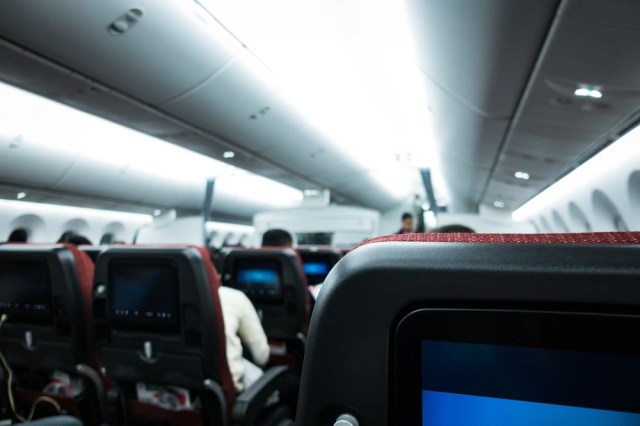
But they’ve got far less travel stress from another common source.
For many people, taking a trip is a mix of exciting and stressful emotions. Travel provider Expedia decided to take a closer look at what those stressful factors are by conducting a survey of travelers from 11 countries/regions, and once they sifted through the data, they found Japanese travelers were on the extreme end of the responses for two questions.
Starting with an unpleasant aspect of travel, more than any other group in the survey, Japanese travelers said they feel stressed out by sitting next to a stranger on an airplane.
When asked “What makes you feel the most uneasy or stressed when flying on an airplane?”, 26 percent of Japanese respondents selected “Sitting next to someone I don’t know.” That was four percent more than the proportion of Americans who cited that as their largest source of stress in the sky, and more than double the proportion of French fliers, who were the most comfortable sitting next to someone who isn’t a previous acquaintance.
● Percentage of respondents who said sitting next to a stranger is the most stressful part of flying
Japan: 26 percent
U.S.A.: 22 percent
Australia: 19 percent
U.K.: 18 percent
Canada (English-speaking): 17 percent
Germany: 16 percent
Mexico: 15 percent
Hong Kong: 15 percent
Canada (French-speaking): 14 percent
Singapore: 14 percent
France: 10 percent
The survey doesn’t seem to have asked respondents why they felt stress sitting next to a stranger, but it’s not hard to think of a few likely reasons for Japanese travelers. As a compact island country with an efficient and convenient high-speed rail system, domestic travelers in Japan overwhelmingly opt for taking trains, so for many Japanese travelers, flying is practically synonymous with international travel. Many people in Japan are painfully aware that the country, on average, isn’t particularly skilled with foreign languages, and also that proportionally, not all that many people outside Japan can communicate easily in Japanese. The resulting combination is that for many Japanese people, being on an airplane means spending a long time sitting next to someone they may not be able to effectively communicate with should the need arise to ask a neighbor to stand up so someone can get by to go to the bathroom, help retrieve a dropped item, etc.
There’s also the fact that many Japanese people realize that, again, on average, their country isn’t as chatty as many others. The prospect of a flight neighbor wanting to make small talk, but not being linguistically able to reciprocate, or to tactfully bring the conversation to a quick close if they’d prefer a quiet flight, is also a likely source of stress for some Japanese travelers.
▼ On a recent flight back to the States, a Japanese woman sitting in my row was cheerfully amazed when her American boyfriend and I, who were complete strangers, got into a conversation simply by nature of realizing we were both from southern California.
That’s not to say that taking a trip is a completely nerve-racking experience for Japanese travelers, though. While the survey’s Japanese respondents felt the most stress from sitting next to a stranger on a plane, they were also the least likely, by far, to get into arguments of squabbles with their traveling companions.
● Do you get into fights with the people who you are traveling with?
Japan: 14 percent
Mexico: 20 percent
Australia: 21 percent
Germany: 22 percent
France: 24 percent
Canada (English-speaking): 27 percent
Singapore: 27 percent
Canada (French-speaking): 28 percent
U.K.: 28 percent
Hong Kong: 33 percent
U.S.A.: 58 percent
▼ I should point out that, despite that startlingly high number for the U.S., the Californian dude and his girlfriend appeared to get along just fine for the entire flight.
So it seems like it’s a case of one of two extremes for the Japanese travelers who took part in the survey: the high stress of sitting next to a stranger, or the relaxed ease of sitting next to a traveling companion they’re unlikely to argue with during their trip. Speaking as someone who’s spent the majority of my life trying to find ways to build international connections between Japan and the rest of the world, my advice would to be to try to meet as many Japanese as possible before boarding an airplane, to increase the chance that any Japanese traveler who happens to end up seated next to you won’t feel that stranger-neighbor stress, but if you still find yourself next to a Japanese traveler you don’t know, a friendly, but quick and noncommittal, smile might be a nice gesture.
Source: PR Times via Livedoor News via Otakomu
Top image: Pakutaso
Insert images: Wikipedia/Devetec, Pakutaso
● Want to hear about SoraNews24’s latest articles as soon as they’re published? Follow us on Facebook and Twitter!
Follow Casey on Twitter, and then you won’t be strangers if you end up sitting next to each other on a plane.